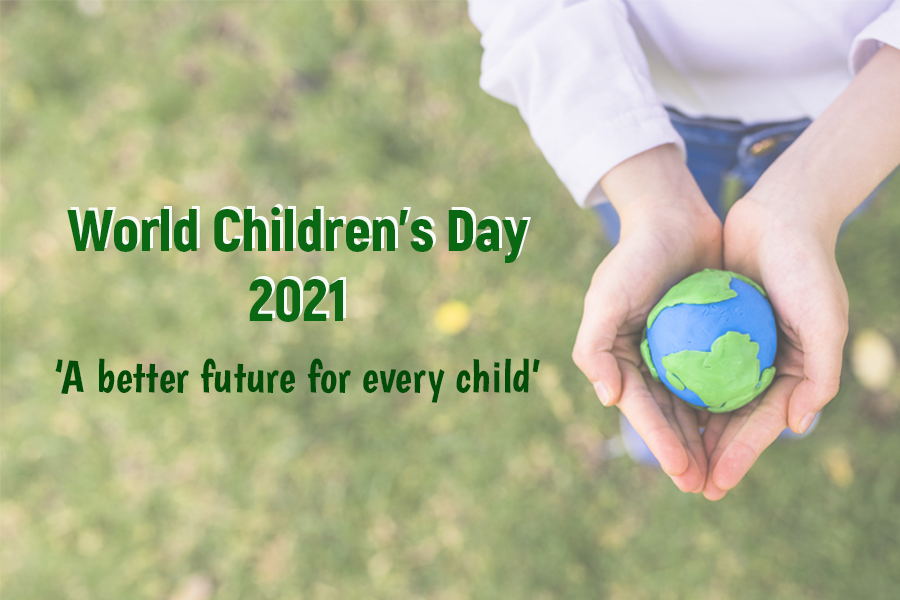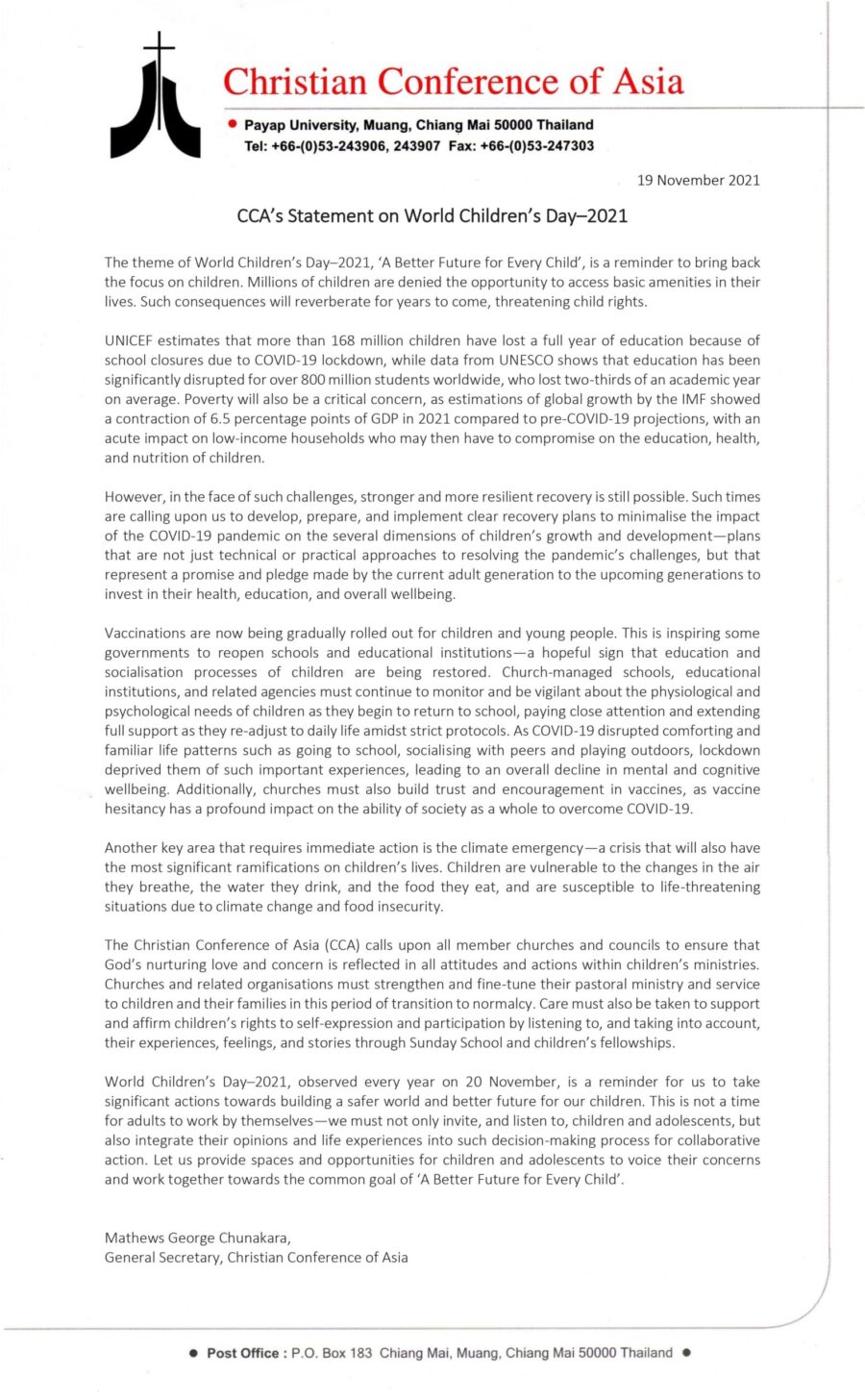On World Children’s Day, CCA calls for churches’ increased attention to the physiological and psychological needs of children during transition to normalcy

CHIANG MAI: On the occasion of World Children’s Day–2021, which falls on 20 November each year, the CCA General Secretary, Dr Mathews George Chunakara, issued a special statement calling upon member churches and councils to “monitor and be vigilant about the physiological and psychological needs of children as they begin to return to school, paying close attention and extending full support as they re-adjust to daily life amidst strict protocols”.
“Such times are calling upon us to develop, prepare, and implement clear recovery plans to minimalise the impact of the COVID-19 pandemic on the several dimension of children’s growth and development—plans that are not just technical or practical approaches to resolving the pandemic’s challenges, but that represent a promise and pledge made by the current adult generation to the upcoming generations to invest in their health, education, and overall wellbeing,” reads the statement.
The General Secretary further noted that vaccine rollouts for children and young people had prompted governments to reopen schools and educational institutions, which was a ‘hopeful sign that the education and socialisation processes of children are being restored’ after COVID-19 had disrupted such ‘familiar and comforting life patterns’. He added, “Churches must also build trust and encouragement in vaccines, as vaccine hesitancy has a profound impact on the ability of society as a whole to overcome COVID-19”.
Elaborating on the annual theme of World Children’s Day, A Better Future for Every Child, Dr Mathews George Chunakara called upon member churches and councils to ‘ensure that God’s nurturing love and concern is reflected in all attitudes and actions within children’s ministries’ and ‘support and affirm children’s rights to self-expression and participation by listening to, and taking into account, their experiences, feelings, and stories through Sunday School and children’s fellowships’.
The full text of the CCA’s Statement on World Children’s Day–2021 can be found below:











